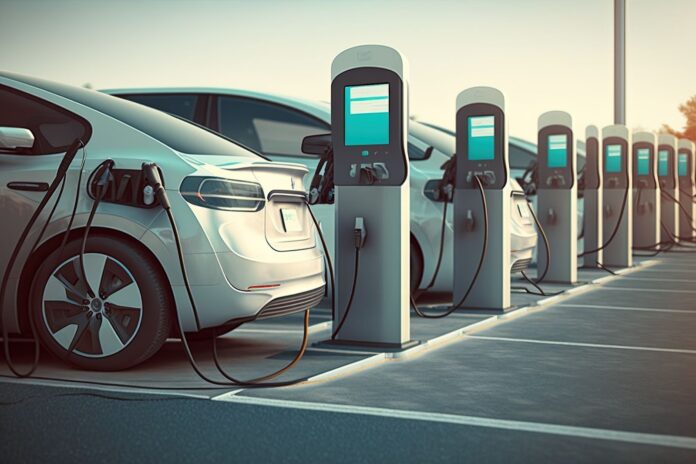The rapid growth of electric vehicles (EVs) has ignited a global shift towards sustainable transportation. As governments, corporations, and individuals increasingly embrace EVs to reduce carbon emissions and combat climate change, the demand for reliable electric vehicle charging infrastructure has soared.
Electric vehicle charging station contractors play a pivotal role in shaping the future of transportation by designing, installing, and maintaining the charging infrastructure necessary to support this burgeoning market.
The Rise of Electric Vehicles and Charging Infrastructure
Electric vehicles have gained remarkable popularity due to their environmental benefits, reduced operating costs, and advanced technologies. However, the proliferation of EVs relies heavily on a well-developed charging infrastructure that is convenient, efficient, and accessible. This is where electric vehicle charging station contractors come into play.
Roles and Responsibilities of EV Charging Station Contractors
- Design and Planning: EV charging station contractors collaborate with various stakeholders, including property owners, utilities, and local governments, to design charging solutions that cater to the specific needs of a given location. This involves assessing power supply capabilities, space availability, and traffic patterns to determine the optimal placement and configuration of charging stations.
- Installation: Contractors are responsible for physically installing charging equipment, including charging stations, associated electrical components, and network infrastructure. This process requires expertise in electrical engineering, ensuring safe and compliant installations that adhere to relevant regulations and standards.
- Network Connectivity: Many modern EV charging stations are equipped with smart technology, enabling features like remote monitoring, payment processing, and user authentication. Contractors establish network connectivity to enable these features, creating a seamless user experience.
- Electrical Upgrades: In some cases, installing charging stations might require upgrading or expanding the electrical capacity of a location. Contractors must evaluate existing electrical systems and, if necessary, upgrade transformers, distribution panels, and wiring to support the increased load.
- Maintenance and Repairs: Ensuring the long-term functionality of charging infrastructure is crucial. Contractors provide ongoing maintenance services to promptly address any technical issues, perform routine inspections, and conduct repairs as needed to minimize downtime and ensure user satisfaction.
- Regulatory Compliance: Electric vehicle charging station contractors must stay informed about local regulations, building codes, and safety standards related to electrical installations and EV charging infrastructure. Compliance with these regulations is essential to guarantee the safety of users and the reliability of the charging network.
- Custom Solutions: Each EV charging project is unique, requiring customized solutions to meet specific requirements. Contractors must be adaptable and innovative, capable of tailoring their approach to accommodate various locations, power capacities, and user demands.
Challenges Faced by Charging Station Contractors
- Technical Expertise: As technology evolves, contractors must stay updated with the latest advancements in EV charging equipment, energy storage, and network management systems.
- Grid Constraints: Integrating multiple high-power charging stations into the grid can strain local electrical systems, necessitating close collaboration with utilities to manage demand and prevent grid instability.
- Permitting and Zoning: Obtaining the necessary permits and navigating zoning regulations can be complex and time-consuming, requiring contractors to liaise with local authorities effectively.
- Interoperability: Ensuring that different charging station brands and models work seamlessly with various EV makes and models is a challenge that contractors must address to enhance user convenience.
- Scalability: Contractors must plan for the scalability of charging infrastructure, considering future increases in EV adoption and the potential need for expanding the charging network.
The Future of Electric Vehicle Charging Station Contractors
The role of electric vehicle charging station contractors is set to become even more crucial as the world accelerates towards widespread EV adoption. These contractors will be instrumental in establishing a robust, reliable, and accessible charging infrastructure that supports the electrified future of transportation.
As technologies evolve and new challenges emerge, the expertise and dedication of these professionals will continue to shape the trajectory of sustainable mobility.
Conclusion
Electric vehicle charging station contractors form the backbone of the EV revolution by designing, installing, and maintaining the vital charging infrastructure that drives the growth of electric transportation. With their technical expertise, regulatory knowledge, and innovative solutions, these contractors are pivotal in ensuring a seamless transition to a more sustainable and eco-friendly future.
As governments, industries, and consumers unite to combat climate change, the work of EV charging station contractors will remain essential in propelling the world towards a greener tomorrow.








